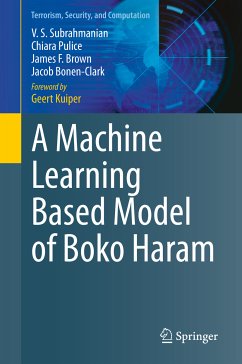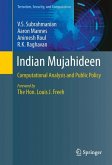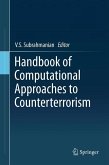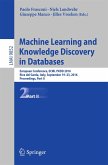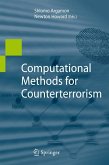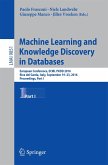After reducing Boko Haram's history to a spreadsheet containing monthly information about different types of attacks and different circumstances prevailing over a 9 year period, this book introduces Temporal Probabilistic (TP) rules that can be automatically learned from data and are easy to explain to policy makers and security experts. This book additionally reports on over 1 year of forecasts made using the model in order to validate predictive accuracy. It also introduces a policy computation method to rein in Boko Haram's attacks.
Applied machine learning researchers, machine learning experts and predictive modeling experts agree that this book is a valuable learning asset. Counter-terrorism experts, national and international security experts, public policy experts and Africa experts will also agree this book is a valuable learning tool.
Dieser Download kann aus rechtlichen Gründen nur mit Rechnungsadresse in A, B, BG, CY, CZ, D, DK, EW, E, FIN, F, GR, HR, H, IRL, I, LT, L, LR, M, NL, PL, P, R, S, SLO, SK ausgeliefert werden.

